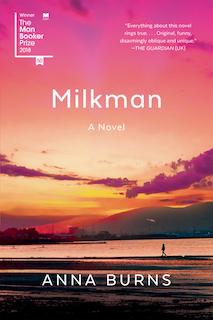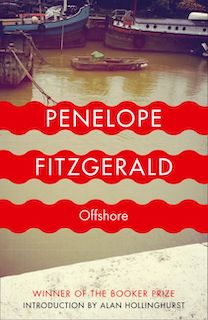The Man Booker Prize is one of the highlights of the serious reader’s year. So when the long list comes out, as it did a couple of weeks ago, people begin to speculate. (Click here for the 2021 list.) I wish I was enough of a serious reader to read more of them and, in a mood to see what I may have missed, trawled through a list of previous winners. It was heartening to find I’d read quite a few so I’ve listed a few of my personal highlights.

Favourite Man Booker winners:
A tricky one this as they are so varied, but the most memorable for me are as follows:

The English Patient by Michael Ondaatje (1992)
This one’s special because it has an interesting historical background, loaded with atmospheric physical settings (Italy and the Egyptian desert), four complex and interesting main characters, a tragic love affair and gorgeous writing. You can tell Ondaatje is a fairly decent poet, the way he paints images with words.

Possession by A S Byatt (1990)
This dual time-frame novel about academic rivalry is subtitled ‘a romance’, but it is also a brilliant mystery. Two young academics – one English and one American, follow a paper trail to discover a little known romantic entanglement between two Victorian poets (loosely based on Christina Rossetti and possibly Tennyson or Browning). Terrific plotting makes this intelligent read hard to put down.

The Gathering by Anne Enright (2007)
This novel follows the Hegarty family as it comes together for a funeral in Ireland for one of its sons, Liam, who has taken his own life. Its narrator, Veronica, is also rather damaged and speculates about things that happened in the past to cause the death. An intelligent novel which looks at the human psyche and family interaction told in Enright’s unmistakably dry tone that is such a pleasure to read.

Wolf Hall by Hilary Mantel (2009)
One of the longer books on the list at 688 pages, yet for me it just whizzed by, bringing the court of Henry VIII to life and in particular, his man for getting stuff done, Thomas Cromwell. Mantel has a style you either love or hate, which is very vivid, present tense and right in Cromwell’s head.
Milkman by Anna Burns (2018)
I reviewed this book last January and still think about it – click Milkman for the post.
More Man Booker Mentions:
In 1986, Margaret Atwood’s shortlisted title, The Handmaid’s Tale, lost out to Kingsley Amis’s novel, The Old Devils.

I have read four of the shortlisted titles the year Iris Murdoch won the prize for The Sea, The Sea in 1978. My best effort yet, but remember I’ve had over forty years to get there. Including the winner, the other titles are: God on the Rocks by Jane Gardam; Jake’s Thing by Kingsley Amis and The Bookshop by Penelope Fitzgerald.
The longest Man Booker Prize winner I’ve read is The Luminaries by Eleanor Catton, which won in 2013, and which took a bit of an effort, I must admit. I read the first half quickly and began to tire towards the end, but enjoyed it over all.

The shortest Man Booker Prize winner I have read is Offshore by Penelope Fitzgerald (at 140 pages) which won in 1979. Although without a word count, it is difficult to be sure as 2011’s winner, The Sense of an Ending by Julian Barnes is only 10 pages longer. If you factor in typography and layout, Barnes might pip Fitzgerald to the post for making every word count.
If you have any personal Man Booker favourites or interesting asides, do drop in with a comment.


 When I went on holiday recently, I packed an assortment of books knowing I would have a few quiet hours away from the Internet and Netflix. I usually like to include an old favourite – you don’t want anything that will be too hard to get into on holiday – and that usually means Anne Tyler, one or two Agatha Christies or a Jane Gardam.
When I went on holiday recently, I packed an assortment of books knowing I would have a few quiet hours away from the Internet and Netflix. I usually like to include an old favourite – you don’t want anything that will be too hard to get into on holiday – and that usually means Anne Tyler, one or two Agatha Christies or a Jane Gardam.









 Pride and Prejudice by Jane Austen is one of the most beloved of classics, and has been filmed and televised again and again. In
Pride and Prejudice by Jane Austen is one of the most beloved of classics, and has been filmed and televised again and again. In 





 Yes, I know they put Atkinson’s Jackson Brodie novels on television and the series was so memorable you can probably remember the broad shape of each plot. But even if you can remember the ending, as soon as you pick up one of the books – and let’s start with the first one:
Yes, I know they put Atkinson’s Jackson Brodie novels on television and the series was so memorable you can probably remember the broad shape of each plot. But even if you can remember the ending, as soon as you pick up one of the books – and let’s start with the first one: